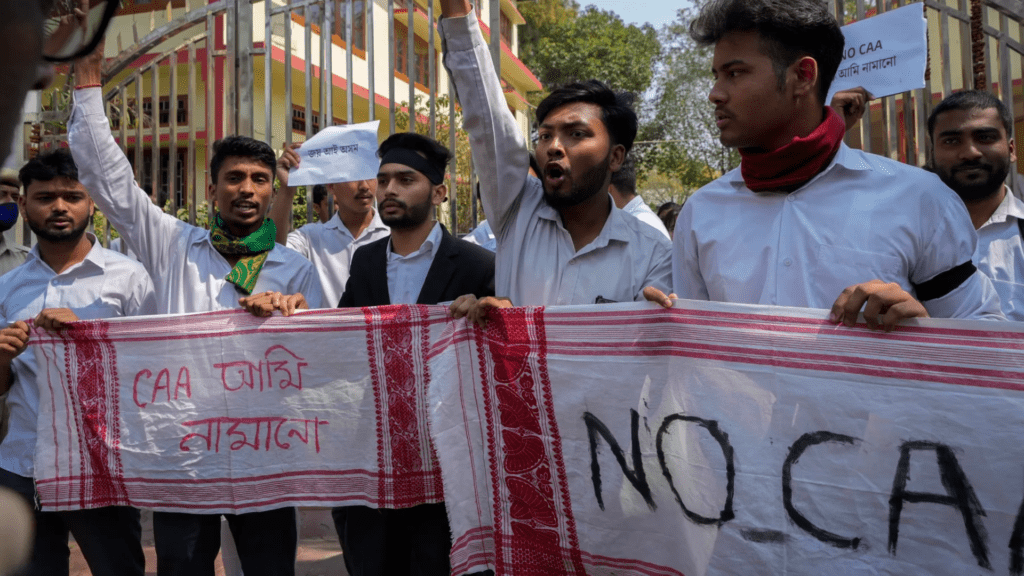“Learn about the Essential Documentation Needed for Citizenship Under CAA 2019”
In a significant development, the Indian government has unveiled the list of essential documents required for individuals seeking Indian citizenship under the Citizenship (Amendment) Act 2019 (CAA). This comprehensive list encompasses a variety of documents that applicants can submit to prove their nationality from Afghanistan, Bangladesh, or Pakistan.
The CAA, implemented by the government to fast-track citizenship for persecuted non-Muslim migrants from neighboring countries, has outlined specific eligibility criteria and documentation requirements for applicants. Here’s a detailed breakdown of the documents accepted under the CAA process:

- Passport: Applicants can submit a copy of a valid or expired passport issued by the government of Afghanistan, Bangladesh, or Pakistan.
- ID Cards: National identity cards issued by government authorities in the applicant’s home country are acceptable.
- Land Tenancy Records: Records proving ownership or tenancy of land in Afghanistan, Bangladesh, or Pakistan can serve as supporting documentation.
- Birth Certificates: Official birth certificates issued by government authorities in the applicant’s home country are valid proof of nationality.
- Educational Certificates: School or college certificates issued by recognized educational institutions in Afghanistan, Bangladesh, or Pakistan are admissible.
- Other Government-Issued Documents: Any identity documents, licenses, or certificates issued by government authorities in the applicant’s home country are acceptable.
The list also includes documents to prove that the applicant entered India on or before December 31, 2014:
- Visa and Immigration Stamps: Copies of visa and immigration stamps on arrival in India serve as evidence of entry.
- Registration Certificates: Certificates issued by Indian authorities such as the Foreigners Regional Registration Officer or Foreigners Registration Officer are accepted.
- Utility Bills: Documents like electricity bills, ration cards, or other utility bills issued in India can help establish residency.
- Financial Records: Bank statements, insurance policies, or other financial documents issued in India provide additional proof of residency.
- Educational Certificates: Academic certificates issued by Indian educational institutions validate the applicant’s presence in the country.
- Marriage Certificates: Marriage certificates issued in India can also serve as supporting documentation.
These documents should be issued by Indian authorities and can be submitted even if they have expired. They must establish that the applicant entered India on or before December 31, 2014, to be considered valid.

The unveiling of these documentation requirements marks a significant step in the CAA implementation process. It provides clarity to applicants and streamlines the citizenship application process under the CAA.
Aspiring applicants are encouraged to review the list carefully and ensure they gather all necessary documents before initiating the citizenship application process. Adherence to the specified documentation requirements will expedite the review process and facilitate the acquisition of Indian citizenship.
In conclusion, the outlined documents play a crucial role in proving nationality and residency status, paving the way for eligible individuals to obtain Indian citizenship under the CAA. The government’s transparent approach in providing clear guidelines underscores its commitment to facilitating a smooth and efficient citizenship application process for eligible migrants.












